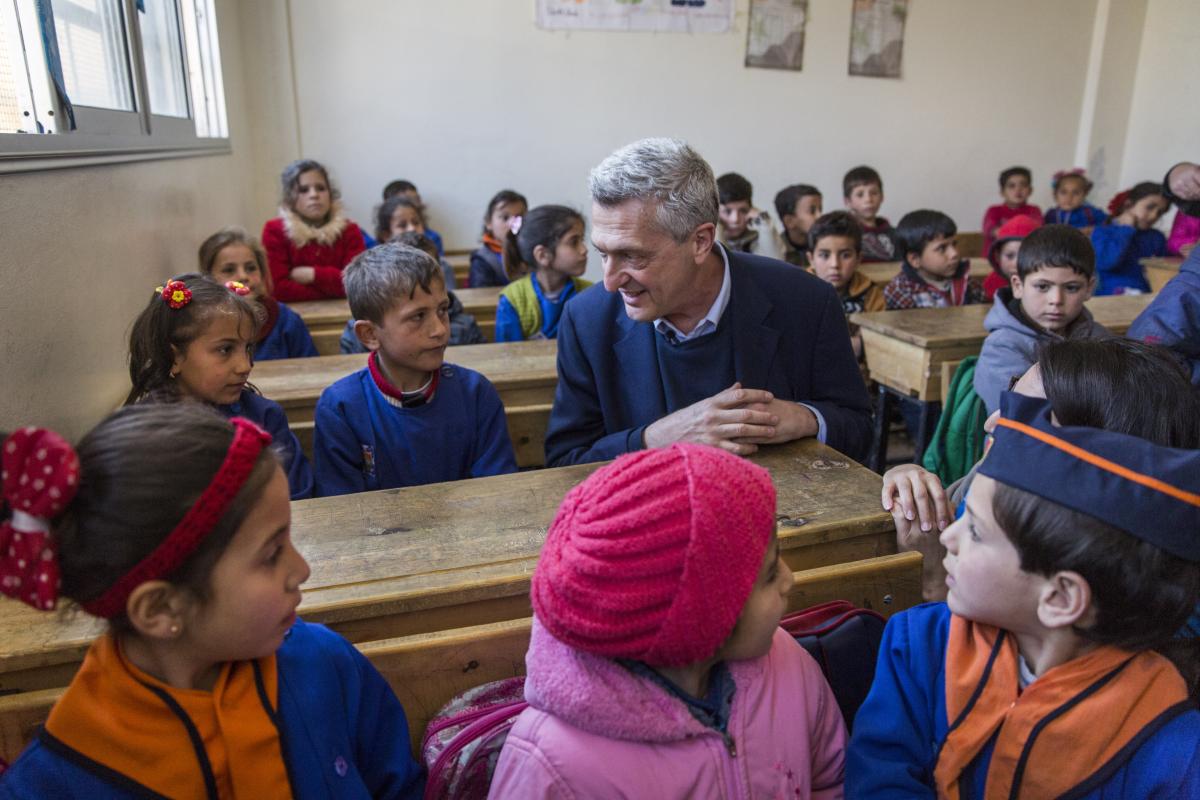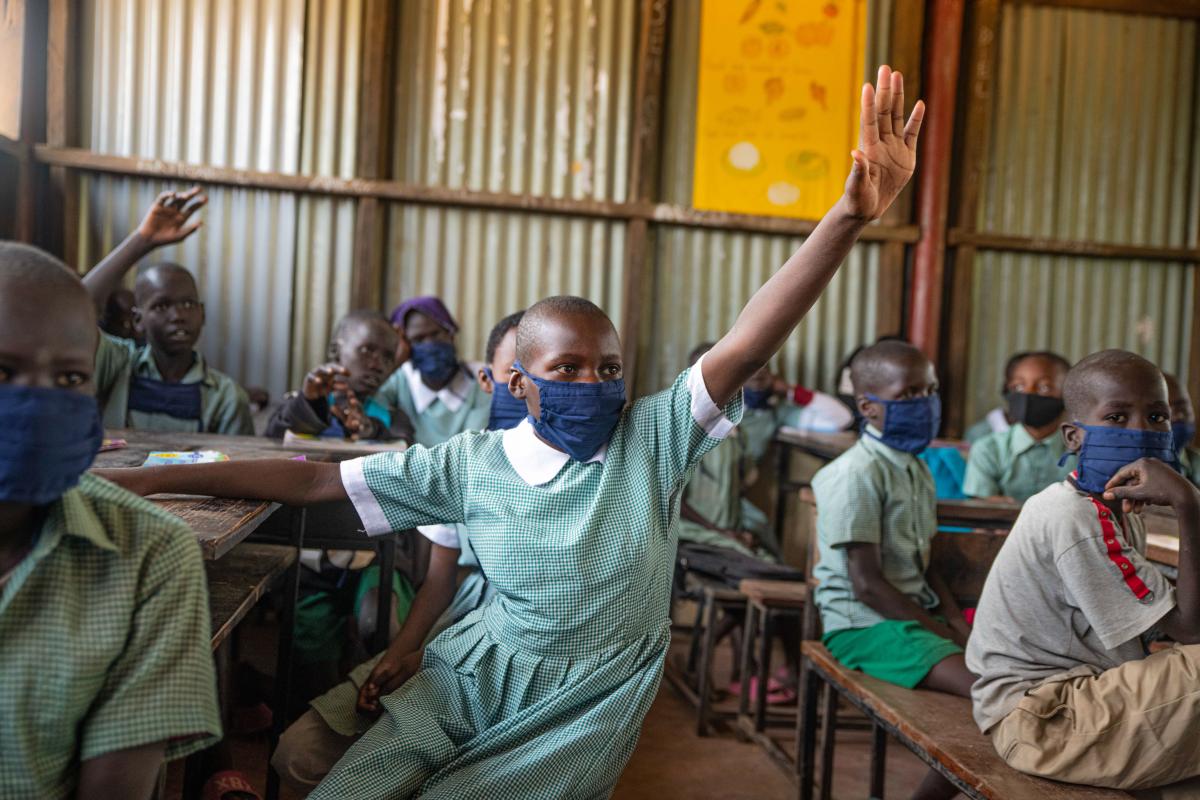Early in the month of December 2021, about 100,000 people have been forced to flee in the Far North region of Cameroon. Most found refuge in neighbouring Chad, while some went to more isolated parts of the country. 88% of the people displaced are children and women. While emergency relief, shelter and food are immediate necessities in crises like this, another challenge often remains in the shadows, although it is undoubtedly the most impactful in the long run: education. The International Day of Education is the occasion to take a closer look on the right to education for people of concern under UNHCR’s mandate.
Education during forced displacement
In situations of forced displacement, access to education often proves to be challenging. In remote and urban areas, access to schools is not always guaranteed: sometimes because of legal or financial barriers, or because there are no schools nearby. In addition, classrooms quickly become overcrowded after people having been forced to flee a conflict or violence arrive by the thousands. Millions of children abandon school to earn money or help their families at home, a trend by which girls are overwhelmingly impacted.
These are among the main reasons why close to half (48%) of all refugee children are today out of school. While around 90% of the world population has completed a primary education, only 68% of refugee children were attending primary school by 2021. At secondary level, this figure drops to only 34%, and at the level of higher education, only 5% of refugees have access to studies. These low percentages not only impact the children and youth, who are denied their right to education, but also the communities in which they live, as education is one of the most sustainable investments in the future of people who were forced to leave everything behind.
UNHCR, the UN Refugee Agency, is committed to the development of sustainable solutions for displaced people, whose exile from home lasts on average 17 years. Education is a cornerstone of this approach, as it represents an investment in the future of the displaced communities and fosters resilience. As put by Filippo Grandi, UN High Commissioner for refugees:
“Education provides the keys to a future in which refugees can find solutions for themselves and their communities.”

Education in the pandemic
The COVID-19 crisis was, for many, a reminder of the importance of access to education. While technology allowed schools to adapt, and classes to continue virtually, this wasn’t the case everywhere, and especially not for displaced people. A lack in access to technology during the COVID-19 pandemic led to a drop in school attendance, with educational institutions closing up, leaving students with no options to learn.
Connected Learning, a programme supported by the Vodafone Foundation, proposed an adapted approach to ensure refugee children an education during the pandemic: through Instant Network Schools, students receive the adequate technological material and training to follow classes in the current times and to access information from all around the world.

UNHCR responses
In times of crisis, UNHCR is quick to respond to the emergency – this also concerns education. From school building to teacher training, or innovative approaches to learning, the UN Refugee Agency tries to ensure that children, wherever they are, do not see the continuity of their schooling interrupted by displacement from conflict, violence, or persecution.
From Aiming Higher, UNHCR’s flagship campaign on tertiary education to the “Educate a child” programme in Chad, the UN Refugee Agency’s response plans to ensure access to education at all levels are rolled out continuously all around the world.
Special attention is given to refugee women and girls, as their relative access and enrollment in school is still much lower than that of men and boys. UNHCR is committed to girls’ and women’s right to access education, and to the fight against any forms of discrimination, harassment, and sexual violence.